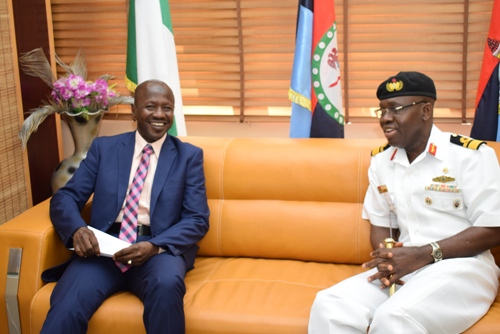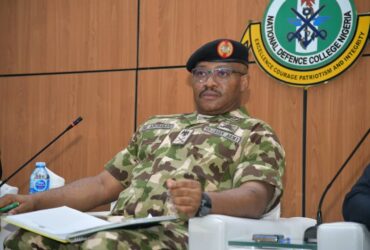Anti-Corruption Strategies: A Panacea to Economic Development

The Acting Chairman Economic and Financial Crimes Commission, Mr Ibrahim Magu said corruption is a global phenomenon with deep historical roots. It is as old as mankind and became visible when governmental institutions emerged in human society. He made this remarks during the lecture he delivered to participants of National Defence College Nigeria course 27. He reiterated that, corruption should not be regarded as peculiar to Nigeria. Its existence and various forms of manifestations is part of a worldwide trend. Nevertheless, corruption has been spreading like an epidemic in Nigeria in recent years and has produced far reaching negative social consequences. It is a dreadful crime that undermines democracy and the rule of law, distorts markets, deepens poverty, widens income inequality, erodes the quality of life of citizens and encourages organized crime and other vices, he added.
He emphasized during the lecture, that it has become necessary for us to fight corruption with the urgency and seriousness it deserves. The Chairman therefore lauded the National Defence College for the invitation to make the presentation on “Corruption and Anti-Corruption Strategies in Nigeria: The Way Forward”, as timely and important. He further emphasized that concerted effort towards fighting corruption by Federal Government of Nigeria began many years ago. The basis for such intervention was derived from two sources, viz, the existence of massive corruption in society and Section 16 (5) of the Nigerian Constitution which states that: “The State shall eradicate all corrupt practices and abuse of power.” Hence, it became a constitutional duty for Federal Government of Nigeria to spearhead the fight against corruption in Nigeria.
The EFCC Chairman added that a combination of several factors was responsible for the establishment of the EFCC in 2003. One factor was the long history of corruption in Nigeria that inflicted so much damage on our society, transforming the country into a haven of money laundering. The second was the need to curb massive corruption and lack of accountability in the private and public sectors. The third was the blacklisting of Nigeria, along with 22 other countries, as a Non-Cooperating Territory by the Financial Action Task Force, which threatened to shut down the inflow of direct foreign investment.
Similarly, the Commandant, National Defence College, Rear Admiral Adeniyi Osinowo said that corruption has continued to have negative impact on economic development, increases social inequality and aggravates political instability in nationhood and therefore advised participants of course 27 being trained as strategic leaders to take the crusade of anti-corruption seriously when they get to the field. He added that President Muhammadu Buhari has taken the challenge of corruption in a serious dimension. He concluded that, the President has demonstrated the political will by giving a free hand to the anti-corruption agencies to operate freely without restrictions.





